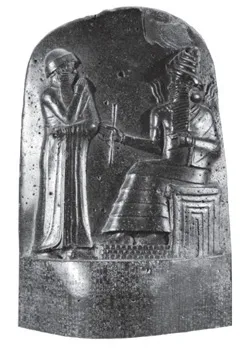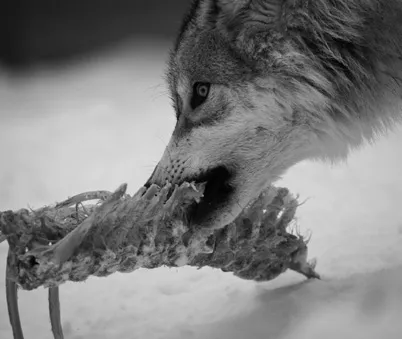![]()
CHAPTER 1
THE NATURE AND ORIGINS OF ETHICS
How should we live? What should we value most in life? Should we aim at happiness, knowledge, virtue, or the creation of beautiful objects? If we choose happiness, will it be our own or the happiness of all? And what of the more particular questions that face us: is it right to be dishonest in a good cause? Can we justify living in opulence while elsewhere in the world people starve? Is going to war justified in cases where it is likely that innocent people will be killed? Is it wrong to clone a human being or to destroy human embryos in medical research? What are our obligations, if any, to the generations of humans who will come after us and to the nonhuman animals with whom we share the planet?
Ethics, also called moral philosophy, considers questions such as these at all levels. It can be defined as the study of what is morally good, right, or just and of what is morally bad, wrong, or unjust. Its major concerns include the nature of ultimate moral value and the standards by which actions, individuals, or states of affairs can be morally evaluated. The term ethics is also used to refer to any system or theory of moral values or principles, as in the ethics of Aristotle or Jewish ethics.
Although ethics has always been viewed as a branch of philosophy, its all-embracing practical nature links it with many other areas of study, including anthropology, biology, economics, history, politics, sociology, and theology. Yet, ethics remains distinct from such disciplines because it is not a matter of factual knowledge in the way that the sciences and other branches of inquiry are. Rather, it has to do with determining the nature of normative theories, which are concerned with standards or norms of conduct, and applying these principles to practical moral problems.
THE INTRODUCTION OF MORAL CODES
When did ethics begin and how did it originate? If one has in mind ethics proper (i.e., the systematic study of what is morally right and wrong), it is clear that ethics could have come into existence only when human beings started to reflect on the best way to live. This reflective stage emerged long after human societies had developed some kind of morality, usually in the form of customary standards of right and wrong conduct. The process of reflection tended to arise from such customs, even if in the end it may have found them wanting. Accordingly, ethics began with the introduction of the first moral codes.
MYTHICAL ACCOUNTS
Virtually every human society has some form of myth to explain the origin of morality. In the Louvre Museum in Paris there is a black Babylonian column with a relief showing the sun god Shamash presenting the code of laws to Hammurabi (died c. 1750 BCE), known as the Code of Hammurabi. Another example might be the account in the Hebrew Bible (Old Testament) of God’s giving the Ten Commandments to Moses (flourished 14th–13th century BCE) on Mount Sinai. The dialogue Protagoras by the Greek philosopher Plato (428/27–348/47 BCE), gives an avowedly mythical account of how the god Zeus took pity on the hapless humans, who were physically no match for the other beasts. To make up for their deficiencies, Zeus gave humans a moral sense and the capacity for law and justice, so that they could live in larger communities and cooperate with one another.
That morality should be invested with all the mystery and power of divine origin is not surprising. Nothing else could provide such strong reasons for accepting the moral law. By attributing a divine origin to morality, the priesthood became its interpreter and guardian and thereby secured for itself a power that it would not readily relinquish. This link between morality and religion has been so firmly forged that it is still sometimes asserted that there can be no morality without religion. According to this view, ethics is not an independent field of study but rather a branch of theology.
Detail of the stela inscribed with the Code of Hammurabi showing the king before the god Shamash. Bas-relief from Susa, 18th century BCE, in the Louvre, Paris. Courtesy of the trustees of the British Museum; photograph, J.R. Freeman & Co. Ltd.
There is some difficulty, already known to Plato, with the view that morality was created by a divine power. In his dialogue Euthyphro, Plato considered the suggestion that it is divine approval that makes an action good. Plato pointed out that, if this were the case, one could not say that the gods approve of such actions because they are good. Why then do they approve of them? Is their approval entirely arbitrary? Plato considered this impossible and so held that there must be some standards of right or wrong that are independent of the likes and dislikes of the gods. Modern philosophers have generally accepted Plato’s argument, because the alternative implies that if, for example, the gods had happened to approve of torturing children and disapprove of helping one’s neighbours, torture would have been good and neighbourliness bad.
PROBLEMS OF DIVINE ORIGIN
A modern theist might say that, because God is good, God could not possibly approve of torturing children nor disapprove of helping neighbours. In saying this, however, the theist would have tacitly admitted that there is a standard of goodness that is independent of God. Without an independent standard, it would be pointless to say that God is good. This could mean only that God is approved of by God. It seems therefore that, even for those who believe in the existence of God, it is impossible to give a satisfactory account of the origin of morality in terms of divine creation. A different account is needed.
There are other possible connections between religion and morality. It has been said that, even if standards of good and evil exist independently of God or the gods, divine revelation is the only reliable means of finding out what these standards are. An obvious problem with this view is that those who receive divine revelations, or who consider themselves qualified to interpret them, do not always agree on what is good and what is evil. Without an accepted criterion for the authenticity of a revelation or an interpretation, people are no better off, so far as reaching moral agreement is concerned, than they would be if they were to decide on good and evil themselves, with no assistance from religion.
Traditionally, a more important link between religion and ethics was that religious teachings were thought to provide a reason for doing what is right. In its crudest form, the reason was that those who obey the moral law will be rewarded by an eternity of bliss while everyone else roasts in hell. In more sophisticated versions, the motivation provided by religion was more inspirational and less blatantly self-interested. Whether in its crude or its sophisticated version, or something in between, religion does provide an answer to one of the great questions of ethics: “Why should I be moral?” As will be seen in the course of this book, however, the answer provided by religion is not the only one available.
PREHUMAN ETHICS
Because, for obvious reasons, there is no historical record of a human society in the period before it had any standards of right and wrong, history cannot reveal the origins of morality. Nor is anthropology of any help, because all the human societies that have been studied so far had their own forms of morality (except perhaps in the most extreme circumstances). Fortunately, another mode of inquiry is available. Because living in social groups is a characteristic that humans share with many other animal species—including their closest relatives, the apes—presumably the common ancestor of humans and apes also lived in social groups. Here, then, in the social behaviour of nonhuman animals and in the theory of evolution that explains such behaviour may be found the origins of human morality.
NONHUMAN BEHAVIOUR
Social life, even for nonhuman animals, requires constraints on behaviour. No group can stay together if its members make frequent, unrestrained attacks on each other. With some exceptions, social animals generally either refrain altogether from attacking other members of the social group or, if an attack does take place, do not make the ensuing struggle a fight to the death—it is over when the weaker animal shows submissive behaviour. It is not difficult to see analogies here with human moral codes. The parallels, however, go much further than this. Like humans, social animals may behave in ways that benefit other members of the group at some cost or risk to themselves. Male baboons threaten predators and cover the rear as the troop retreats. Wolves and wild dogs take meat back to members of the pack not present at the kill. Gibbons and chimpanzees with food will, in response to a gesture, share their food with other members of the group. Dolphins support other sick or injured dolphins, swimming under them for hours at a time and pushing them to the surface so they can breathe.
Social animals often act to benefit other members of their group. For example, wolves take meat to pack members not present at a kill. © www.istockphoto.com/Len Tillim
It may be thought that the existence of such apparently altruistic behaviour is odd, for evolutionary theory states that those who do not struggle to survive and reproduce will be eliminated through natural selection. Research in evolutionary theory applied to social behaviour, however, has shown that evolution need not be so ruthless. Some altruistic behaviour is explained by kin selection. The most obvious examples are those in which parents make sacrifices for their offspring. If wolves help their cubs to survive, it is more likely that genetic characteristics, including the characteristic of helping their own cubs, will spread through further generations of wolves.
KINSHIP AND RECIPROCITY
Less obviously, the principle also holds for assistance to other close relatives, even if they are not descendants. A child shares 50 percent of the genes of each of its parents, but full siblings too, on the average, have 50 percent of their genes in common. Thus, a tendency to sacrifice one’s life for two or more of one’s siblings could spread from one generation to the next. Between cousins, where only 12.5 percent of the genes are shared, the benefit-to-sacrifice ratio would have to be correspondingly increased.
When apparent altruism is not between kin, it may be based on reciprocity. A monkey will present its back to another monkey, which will pick out parasites, and after a time the roles will be reversed. Reciprocity may also be a factor in food sharing among unrelated animals. Such reciprocity will pay off, in evolutionary terms, as long as the costs of helping are less than the benefits of being helped and as long as animals will not gain in the long run by “cheating”—that is to say, by receiving favours without returning them. It would seem that the best way to ensure that those that cheat do not prosper is for animals to be able to recognize cheats and refuse them the benefits of cooperation the next time around. This is possible only among intelligent animals living in small, stable groups over a long period of time. Evidence supports this conclusion: reciprocal behaviour has been observed in birds and mammals, the clearest cases occurring among wolves, wild dogs, dolphins, monkeys, and apes.
In short, kin altruism and reciprocity do exist, at least in some nonhuman animals living in groups. Could these forms of behaviour be the basis of human ethics? There are good reasons for believing that they could. Kinship is a source of obligation in every human society. A mother’s duty to look after her children is recognized in every known society, and the duty of a father to support and protect his family is almost as widely maintained. Duties to close relatives take priority over duties to more distant relatives, but in most societies even distant relatives are still treated better than strangers.
If kinship is the most basic and universal tie between human beings, the bond of reciprocity is not far behind. It would be difficult to find a society that did not recognize, at least under some circumstances, an obligation to return favours. In many cultures this is taken to extraordinary lengths, and there are elaborate rituals of gift giving. Often the repayment must be superior to the original gift, and this escalation can reach extremes that eventually threaten the economic security of the donor. The huge potlatch, feasts of certain Native American tribes are a well-known example of this type of situation. Many Melanesian societies also place great importance on giving and receiving substantial amounts of valuable items.
Many features of human morality could have grown out of simple reciprocal practices, such as the mutual removal of parasites from awkward places. Suppose a person wanted to have the lice in his hair picked out and was willing in return to remove lice from someone else’s hair. The person must choose his partner carefully. If he helps everyone indiscriminately, he will find himself delousing others without getting his own lice removed. To avoid this, he must learn to distinguish between those who return favours and those who do not. In making this distinction, he would be separating reciprocators from nonreciprocators and, in the process, developing crude notions of fairness and of cheating. He will naturally strengthen his ties to those who reciprocate, and bonds of friendship and loyalty, with a consequent sense of obligation to assist, will result.
Investors believed they were entering into a reciprocal relationship with Bernard Madoff (centre), who instead swindled them out of billions of dollars. Chris Hondros/Getty Images
This is not all. The reciprocators are likely to react in a hostile and angry way to those who do not reciprocate. Perhaps they will regard reciprocity as good and “right” and cheating as bad and “wrong.” From here it is a small step to concluding that the worst of the nonreciprocators should be driven out of society or else punished in some way so that they will not take advantage of others again. Thus, a system of punishment and a notion of just desert constitute the other side of reciprocal altruism.
Although kinship and reciprocity loom large in human morality, they do not cover the entire field. Typically, there are obligations to other members of the village, tribe, or nation, even when they are strangers. There may also be a loyalty to the group as a whole that is distinct from loyalty to individual members of the group. It may be at this point that human culture intervenes. Each society has a clear interest in promoting devotion to the group and can be expected to develop cultural influences that exalt those who make sacrifices for the sake of the group and revile those who put their own interests too far ahead. More tangible rewards and punishments may supplement the persuasive effect of social opinion. This is the start of a process of cultural development of moral...



